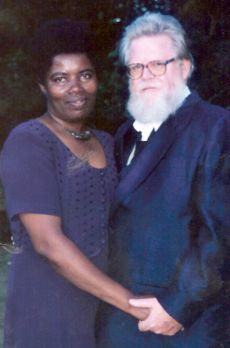Diferencia entre revisiones de «Usuario:Philbartle»
De WikiEducator
m (→Los sermones de Phil) |
(→Los sermones de Phil) |
||
| Línea 68: | Línea 68: | ||
Mis pensamientos ocasionales sobre el WikiEducador y su comunidad | Mis pensamientos ocasionales sobre el WikiEducador y su comunidad | ||
| + | |||
| + | *► '''Agricultural Revolution, Culture and Open Education'''. Without doubt, the most profound event in the history and development of human beings was and is the Agricultural Revolution. Without it we were gatherers and hunters living in small bands. With it we developed complex social organization, cities, states, industry, the Internet, increasingly faster production of new inventions and technology, and the creation of complex ideas and perspectives. | ||
| + | |||
| + | :◊ If we look at the classical Greek teachers, we see a frequent reference to education as cultivation (eg Epicurus) using an agricultural metphor to describe and analyse learning and teaching. | ||
| + | |||
| + | :◊ We usually see the process of education as one of transferring ideas, knowledge, skills and wisdom. Here let us also use an alternative approach which sees education as caring and cultivating. This approach tends to emphasize moral development (although not exclusively) and the idea that our minds are like gardens or farms. We grow and develop organically, and what is needed is the nutrients, sun and water, not a forceful moldling of our ways of thinking. | ||
| + | |||
| + | :◊ If agriculture has had such a revolutionary effect on human society, think what education, as a form of cultivation, is doing to humanity. | ||
| + | |||
| + | :◊ If we see our developing of open and free educational resources, not only for the transfer of kowledge, but also for the care and cultivation of the learners, then we will be contributing to a new and incredibly valuable body of knowledge and understanding in this world. Some anthropologists have argued that it was not so much the domestication of plants and animals which transformed us, but our domestication of ourselves. The cultivation of ourselves, as learners, knowing that teaching and learning is best if a two way process, will take us, as they say in Star Trek, where no one has gone before. | ||
| + | |||
| + | :◊ I see education as a gardening process, and the development of free and open education as a revolutionary process that will have as important an effect on humanity as the agricultural revolution. The force is not only with us; we are The Force. | ||
| + | : --[[Usuario:Philbartle|Phil Bartle]] 12:35 28 ago 2009 (UTC) | ||
*► '''Epistemology''': It might be time to add a few questions about epistemology (how we know) to our discussions on WikiEducator. Lots of good debate on "How do we learn?" and its converse (but not its mirror image), "How do we teach?" Now we should ask, "How do we know?" If we learn something, how do we know if and when we know? If we teach something, how do we know if and when the taught know? | *► '''Epistemology''': It might be time to add a few questions about epistemology (how we know) to our discussions on WikiEducator. Lots of good debate on "How do we learn?" and its converse (but not its mirror image), "How do we teach?" Now we should ask, "How do we know?" If we learn something, how do we know if and when we know? If we teach something, how do we know if and when the taught know? | ||
Revisión de 01:35 29 ago 2009
|
Български Deutsch English Français Polski Português Romãnã Pyccкий Tagalog Just try it; we (your community) will support you.
ContenidoLos sermones de PhilEl atleta no se hará más fuerte Traducido por Cristina Varela Mis pensamientos ocasionales sobre el WikiEducador y su comunidad
UtilitidadesToday is: 2024 noviembre 25, lunes Contactos frecuentesOur little band, y amig@s de Potenciacion Comunitaria
Tips and SuggestionsComentarios de mis WikivecinosPor favor, escribe tus comentarios en la sección de Debates. Pincha en "Debate" en la parte superior de esta página.--Phil Bartle 03:07 3 may 2009 (UTC) |
||||||||||||||||||||||||||||||||||||||


